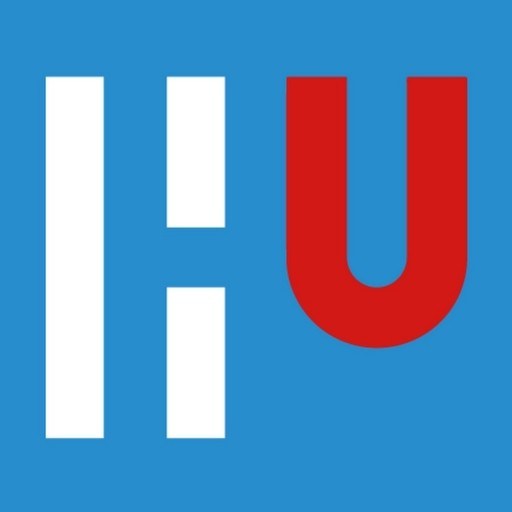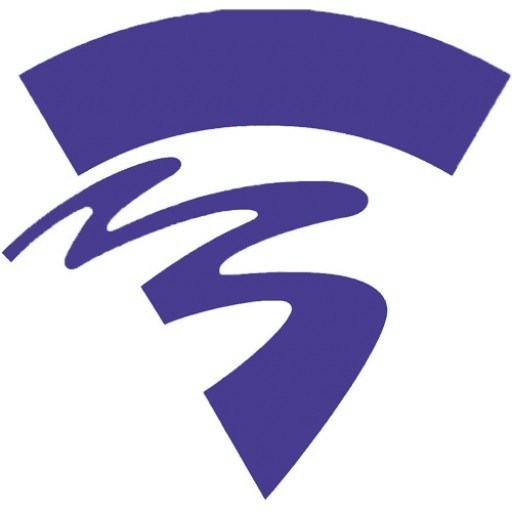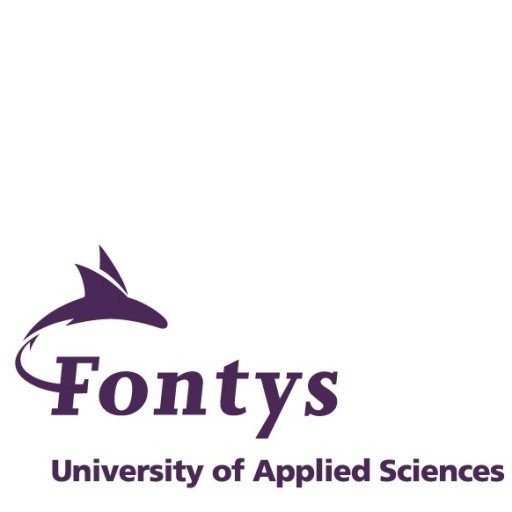Photos of university
The MSc in Broadband Telecommunication Technologies at Eindhoven University of Technology is an advanced academic program designed to equip students with in-depth knowledge and practical skills in the rapidly evolving field of telecommunication networks and broadband technologies. This program focuses on the core principles underlying the design, implementation, and management of high-speed, reliable, and secure communication systems.
Throughout the degree, students will explore a wide range of topics, including optical fiber communications, wireless and mobile networks, network protocols, data transmission techniques, and emerging broadband technologies. The curriculum emphasizes both theoretical foundations and hands-on experience, enabling graduates to address real-world challenges faced by telecommunications providers and technology developers.
The program also covers essential aspects such as network architecture, signal processing, encryption, and cyber security, ensuring students are well-versed in the latest standards and innovations. Special attention is given to the integration of broadband systems with Internet of Things (IoT), cloud services, and 5G/6G technologies, preparing students for future developments in global connectivity.
Students benefit from Eindhoven University of Technology's strong industry connections and research-oriented environment. They have opportunities to participate in cutting-edge projects, internships, and collaborations with leading telecom companies, laboratories, and research institutes. This experience enhances their practical understanding and prepares them for a successful career in academia, research, or industry.
Graduates of this program are equipped to contribute to the development of next-generation telecommunication networks, optimize existing systems, and innovate new solutions. With a solid foundation in both hardware and software aspects of broadband communication, they are prepared to tackle technical challenges and lead technological advancements in a connected world.
In addition to technical expertise, students develop critical thinking, problem-solving, and communication skills essential for leadership roles in technology-driven environments. The MSc in Broadband Telecommunication Technologies provides a comprehensive education that aligns with current industry demands and positions graduates at the forefront of telecommunication innovation worldwide.
Broadband Telecommunication Technologies at Eindhoven University of Technology offers a comprehensive and in-depth education focused on the design, development, and management of advanced telecommunication networks. This program prepares students to meet the challenges of the rapidly evolving digital communication landscape by providing a strong foundation in core concepts such as network protocols, signal processing, wireless communication, fiber optics, and network security. Throughout the curriculum, students explore the principles of data transmission, modulation techniques, and the physical layer of communication systems, ensuring they understand both theoretical frameworks and practical applications. Hands-on experience is emphasized through laboratory work, project-based assignments, and collaboration with industry partners, enabling students to apply their knowledge to real-world problems. The program also covers cutting-edge topics like 5G and beyond, Internet of Things (IoT), and software-defined networking, preparing graduates to lead innovation in telecommunication infrastructure. Students are encouraged to develop critical thinking and problem-solving skills, working on projects that involve designing and optimizing high-capacity broadband networks and ensuring their security and reliability. The curriculum is designed in close alignment with industry standards, ensuring that graduates are well-equipped with the skills needed for a successful career in telecommunication engineering, network architecture, research, or further academic pursuits. With access to state-of-the-art laboratories and facilities, students learn to operate advanced telecommunication equipment and software. The program fosters a collaborative learning environment, promoting teamwork and communication skills vital for interdisciplinary work in the tech industry. Graduates of this program acquire a broad range of competencies, including technical expertise, innovative thinking, and an understanding of societal and economic impacts of telecommunication technologies, preparing them to contribute effectively to the digital transformation of society. The program also emphasizes sustainability and ethical considerations in technology development, ensuring responsible innovation in the field of broadband telecommunication technologies.
The Bachelor's programme in Broadband Telecommunication Technologies at Eindhoven University of Technology requires applicants to have a strong foundation in mathematics, physics, and computer science. Prospective students should typically hold a secondary school diploma equivalent to the Dutch VWO diploma with a profile emphasizing science and technology subjects. A proficiency in English is essential, with accepted tests including IELTS with a minimum score of 6.0, TOEFL with a minimum score of 80 (internet-based test), or Cambridge English certificates such as CAE or CPE.
Applicants are expected to demonstrate analytical thinking, problem-solving skills, and an interest in electronic communication systems. Prior knowledge or coursework in electronics, signals, programming, and mathematics will be advantageous. The programme may also prefer candidates who have completed courses in data communication, digital technology, and physics related to electromagnetic waves.
There are no strict prerequisite courses explicitly mandated by the university, but a solid background in calculus, linear algebra, physics, and programming fundamentals is recommended. The selection process typically considers academic records, motivation, and relevant extracurricular activities. International students might need to fulfill additional requirements such as visa regulations and language tests.
Once admitted, students will be expected to engage in coursework that includes theoretical lectures, practical lab sessions, project work, and collaborative assignments. Emphasis is placed on developing both technical competence and innovative skills in broadband communication networks, signal processing, and wireless technology. To successfully complete the programme, students must fulfill the credits required for graduation, pass all core and elective courses, and undertake a final project or thesis demonstrating their mastery of broadband telecommunication topics.
Furthermore, the programme encourages participation in internships or industry collaborations to enhance practical experience. Continuous assessment through assignments, exams, and project evaluations ensures students meet learning outcomes aligned with industry standards. The curriculum is designed to prepare graduates for careers in telecommunications companies, network infrastructure providers, research institutes, and related sectors, emphasizing both technical proficiency and analytical capabilities needed for future advancements in broadband communication technologies.
The financing of the Broadband Telecommunication Technologies master's program at Eindhoven University of Technology is structured to support both domestic and international students through a variety of funding options. Tuition fees are established annually by the university and vary depending on the student's nationality and residency status. International students are generally required to pay higher tuition fees compared to Dutch residents, reflecting the general policy at Dutch universities. For the academic year 2023-2024, the tuition fee for non-EU/EEA students is set at approximately €18,040 per year, while EU/EEA students pay around €2,314 per year.
Students are encouraged to explore a range of financial aid options to fund their studies, including scholarships, grants, and student loans. The Eindhoven University of Technology offers several scholarships aimed at highly talented international students, such as the Holland Scholarship, which provides a one-time grant to outstanding students from outside the Netherlands. Additional financial support may be available through external organizations, government grants, and private foundations, depending on the applicant's country of origin and specific circumstances. It is advisable for prospective students to review these opportunities early and prepare application materials thoroughly.
Many students finance their studies through a combination of personal savings, family support, part-time work, and governmental loans. The Netherlands has a well-developed system of student loans and grants, primarily available to Dutch residents and EU/EEA students who meet specific criteria. International students from outside the EU/EEA are generally not eligible for Dutch government student grants but may qualify for private loans or scholarships.
Living expenses in Eindhoven are an important consideration in financing studies. Estimated monthly costs for accommodation, food, transportation, insurance, and personal expenses range from €900 to €1,200, depending on lifestyle and housing choices. Students are advised to budget accordingly and explore on-campus accommodation options or private housing to manage costs effectively.
The university also offers teaching assistantships, research assistantships, and paid internship opportunities where students can earn supplementary income while gaining practical experience related to their field of study. These positions are limited and competitive; therefore, students interested should apply early and meet the specific eligibility criteria.
In summary, financing the Broadband Telecommunication Technologies master's program at Eindhoven University of Technology involves understanding tuition fee structures, applying for scholarships and financial aid, considering personal and family contributions, and exploring part-time employment opportunities. Students are encouraged to plan their finances carefully and seek advice from the university's financial aid office to ensure they can successfully fund their studies throughout the duration of the program.
The Bachelor’s programme in Broadband Telecommunication Technologies at Eindhoven University of Technology offers students a comprehensive education focused on the fundamental principles and advanced applications of modern telecommunications systems. This programme aims to prepare students for a career in the rapidly evolving field of broadband communication, encompassing areas such as network infrastructure, wireless and optical communications, data transmission, and digital signal processing. Throughout the course, students gain in-depth knowledge of the physical and network layers of telecommunications, enabling them to design, develop, and optimize high-speed communication systems that form the backbone of today’s digital society. The curriculum combines theoretical studies with practical skills, including laboratory work, projects, and collaborations with industry partners, ensuring students are well-equipped to meet contemporary technological challenges. Instruction covers a wide array of topics such as radio frequency communication, optical fiber technology, 4G/5G networks, internet protocols, and cybersecurity measures related to telecommunications. The programme emphasizes innovation and research, encouraging students to explore emerging technologies like IoT, 5G, and future wireless standards. Students are also introduced to the business and regulatory aspects influencing telecommunications infrastructure and services, preparing them for leadership roles in industry or academia. The institution fosters an international learning environment, with opportunities for exchange programmes and collaboration with global technology companies. Graduates are expected to develop not only technical expertise but also skills in teamwork, communication, and project management, enabling them to contribute effectively to the development and implementation of broadband communication solutions worldwide. The programme typically spans three years, culminating in a Bachelor's degree that provides a strong foundation for further specialisation through Master’s programmes or direct entry into the telecommunications sector.







